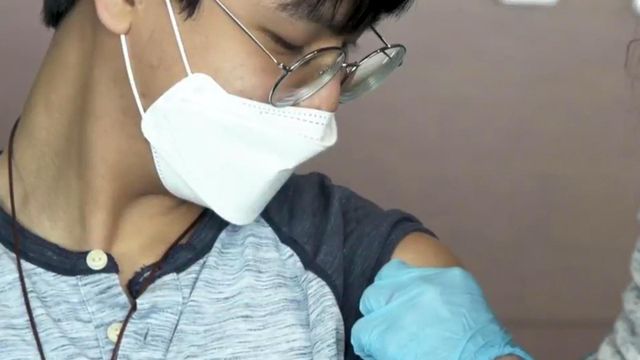Duke on solid legal ground to require students be vaccinated
Duke University can legally require that students be vaccinated against coronavirus to be on campus, two lawyers said Monday.
Posted — UpdatedDuke officials announced on Friday that all undergraduate, graduate and professional students need to present present proof of vaccination before they can enroll for the fall semester. Documented medical and religious exemptions would be accommodated, officials said.
"We and every other college and university has a long record of requiring a number of immunizations and vaccinations," said Michael Schoenfeld, Duke's chief communications and government relations officer. "The bottom line is the vaccine is safe, [and] it is effective."
Duke is among a small number of private universities nationwide to announce such requirements, joining the likes of the University of Notre Dame, Cornell University, Brown University and Syracuse University.
"We would not have made this decision if, and would not have announced and implemented this policy, if we did not have the ability to do so," Schoenfeld said. "The decision about whether to get a vaccination is a matter of personal choice. It’s also a matter of personal choice about whether you choose to attend Duke."
WRAL News checked with more than two dozen public and private universities across North Carolina on Monday, and Duke is the only one requiring students to be vaccinated. Several did say they are considering their options and expect to make a decision in the coming weeks.
University of North Carolina System officials consider a vaccine requirement "premature," UNC-Chapel Hill Chancellor Kevin Guskiewicz told members of an advisory committee last week. He noted that the Centers for Disease Control and Prevention hasn't mandated vaccinations for students and that such a requirement might necessitate a change to state law.
Campbell University Vice President for Institutional Advancement Britt Davis said "the law does not seem to allow us to require 'emergency vaccines,'" so he doesn't expect many to do so "until the law is modified or the courts say it's OK."
But Scott Holmes, a law professor at North Carolina Central University, and Durham attorney Daniel Meier said Monday that universities are well within their rights to mandate them.
Some universities across the U.S. said they cannot require vaccinations because none of the available vaccines has been formally approved by the U.S. Food and Drug Administration. All are being administered under emergency authorizations.
Holmes said people might raise that in a legal challenge, but he doesn't think that argument holds much water.
"State laws already require some vaccines for public schools and universities," Holmes said. "Even with respect to employment law, particularly private employers have the right to make these kind of requirements under these kinds of circumstances as long as there is a business necessity."
Duke isn't yet requiring vaccinations for faculty or staff, Schoenfeld said.
"In general, if there are opposing medical views about the risks, employers and local governments and state governments are entitled to choose which opinion they think is correct," Holmes said. "This is an issue of public safety, and as long as state and local governments are acting reasonably and not arbitrarily and based upon some medical opinion, then it’s likely to be constitutional."
The North Carolina Attorney General's Office is anticipating a challenge to required vaccines, as spokeswoman Laura Brewer told WRAL News she was "unable to comment on this issue due to potential litigation we may be involved in in the future."
Requiring vaccination might be the legally safer option, Holmes said.
"Some of these employers may be concerned that they may be violating the law if they don't require vaccines because they have the obligation to make the workplace safe for students and employees," he said.
Related Topics
• Credits
Copyright 2024 by Capitol Broadcasting Company. All rights reserved. This material may not be published, broadcast, rewritten or redistributed.






